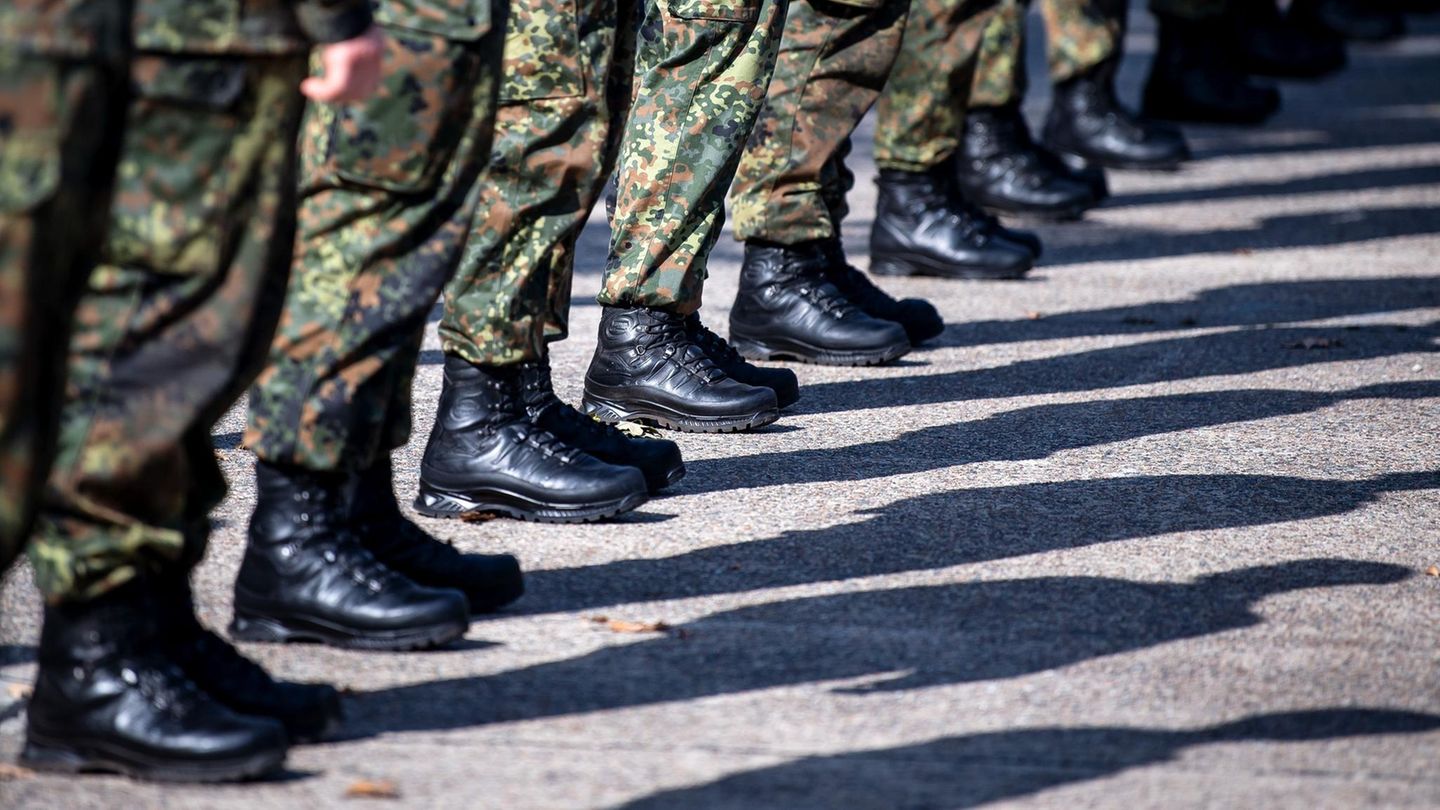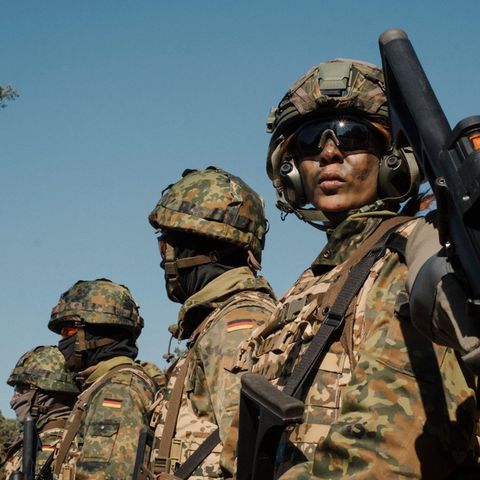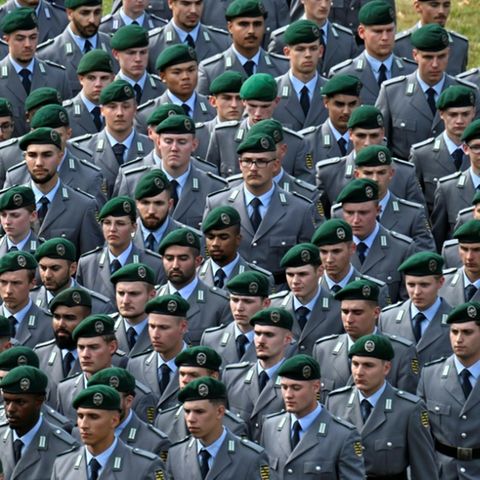questions and answers
These are the problems with Pistorius’ military service plans
Copy the current link
Add to watchlist
Federal Defense Minister Boris Pistorius wants to reform the military service and promote young talent. But his plans are controversial. What’s wrong and what it needs.
A lot is set to change in military service from next year. Federal Defense Minister Boris Pistorius (SPD) had put new rules into a draft law, which the federal cabinet also approved in August. But the Union faction is dissatisfied and so are specialist politicians from the coalition in the Bundestag. Pistorius doesn’t like their proposed changes. It’s about sampling and also possible lottery procedures.
Eventually there was a bang and an agreement was called off. The original draft will now be discussed in parliament in its first reading. As with any law, a lot is likely to change before it is passed in the Bundestag, especially in view of the disagreements that have not been resolved. An overview of the lines of conflict.
Why should military service be reregulated at all?
The Bundeswehr should grow. The reason given is a massive “intensification of the threat situation in Europe as a result of Russia’s war of aggression against Ukraine, which violates international law.” “The tasks of immediate national defense within the framework of national and NATO defense planning require a significantly higher number of active soldiers during peacetime,” the draft law continues.
What numbers are involved?
According to the draft, 460,000 soldiers are needed, around 260,000 in the standing troops and 200,000 reservists. There are currently around 183,000 active soldiers and, according to the annual report of the military commissioner, around 50,000 ordered reservists, i.e. reservists who are scheduled for a specific duty post.
What should change?
Conscription still exists, but has been suspended since 2011. Since then there has been voluntary military service. Everyone agrees that it should stay that way if possible. In order to attract more volunteers, the so-called military registration should be reformed. The aim is to get a better picture of how many per year are actually eligible for service in the troops. The stated goal is also to increase the number of volunteers simply because young people will have to deal with the topic directly in the future. There should also be greater incentives for the service.
How will this be achieved according to current plans?
According to Pistorius’ plan, anyone who comes of age after January 1, 2026 will receive a letter with a QR code sometime after their 18th birthday, which leads to an online questionnaire. Personal data such as educational qualifications, height, weight and possible willingness to do military service are requested.
Young women do not have to fill out this form, young men do. It is estimated that this affects around 300,000 to 350,000 people per year. According to the draft law, anyone who ignores the questionnaire or provides false information in it is committing an administrative offense that is punishable by a fine.
And all young men have to go back to muster?
That is one of the sticking points. Pistorius wants that. He emphasized once again that he believes comprehensive testing is necessary. According to the current plans, it is to be resumed in Germany from July 1, 2027 – in 2027 because the structures for this first have to be rebuilt. The defense experts from the Union and SPD, on the other hand, suggest only inviting people to the muster if too few volunteers come forward in step one. Additional young men would then be invited to a compulsory muster through a random selection (lot system). But military service would remain voluntary for them.
At what point could all this voluntariness end?
This is the second sticking point and here too it is about a possible lottery procedure. Pistorius’ draft law provides for the option that the federal government may order the conscription of unserving soldiers “if the defense policy situation absolutely requires a rapid increase in the armed forces, which cannot be achieved on a voluntary basis.” Such a regulation would still need the confirmation of the Bundestag.
However, the coalition’s defense experts would rather place such decisions directly in the hands of the Bundestag and would also like to regulate this more specifically. According to their proposal, if there are not enough volunteers, the Bundestag should decide to allow a call-up, but this should be based on the numerical needs of the Bundeswehr. Only as many young men as were needed would then be drafted through a random process (lot system). Anyone who refuses would have to provide alternative service.
But wouldn’t drawing lots be unfair and therefore unconstitutional?
That is the difficult question. Can compulsory military service be limited to the number of personnel required by the military and drawn out by lottery or does the Basic Law only allow general compulsory military service for everyone for reasons of fairness in military service? Former Federal Constitutional Judge Udo di Fabio came to the conclusion in a report for the CDU/CSU parliamentary group that a “contingent defense obligation” and a lottery system would be permissible.
“A proper lottery procedure is not a form of arbitrariness, but rather, using certain variables and procedural principles, it ensures a fair random procedure within which chance functions as an objective constant,” he writes. In case of doubt, the Federal Constitutional Court decides. There are likely to be lawsuits against such a regulation if it comes.
What incentives are planned to encourage more volunteers?
The pay should be significantly better. According to the current draft, those doing military service should in future be treated like temporary soldiers who are committed for a longer period of time. According to a spokesman for the Ministry of Defense, this will mean a net starting salary of around 2,300 euros in the future instead of the previous 1,600 to 1,700 euros.
There will also be a hefty subsidy of up to 3,500 euros for a car driving license, but only for those who do at least twelve months of military service. The driving license would also have to be obtained within a period of one year before and one year after military service.
DPA
Jörg Ratzsch / cl
Source: Stern
I have been working in the news industry for over 6 years, first as a reporter and now as an editor. I have covered politics extensively, and my work has appeared in major newspapers and online news outlets around the world. In addition to my writing, I also contribute regularly to 24 Hours World.






